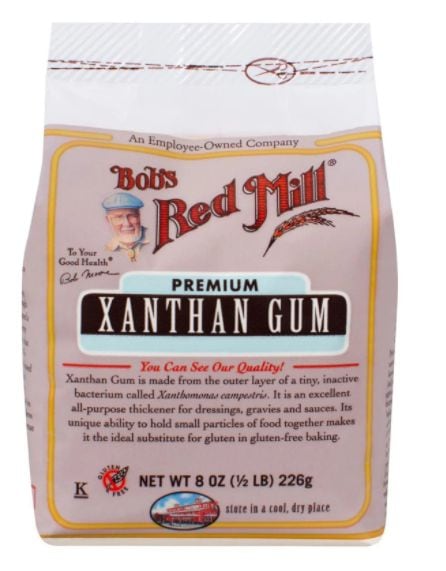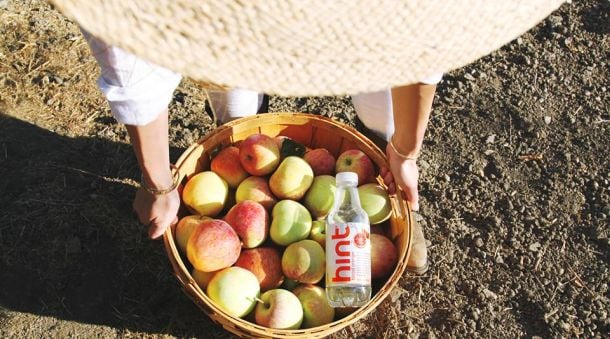In a complaint* filed on August 28 by the law office of John W. Davis (which follows a near-identical lawsuit** filed on May 1 by Bursor & Fisher), plaintiff Janell Johnson Campbell alleges that reasonable consumers would not expect to find xanthan gum in foods labeled as ‘natural.’
Xanthan gum - which is produced on a commercial scale via the fermentation of sugars with the bacterium Xanthomonas campestris, and then harvested via precipitation with isopropyl alcohol (rubbing alcohol) – is listed by USDA in 7 CFR § 205.605 (b) as one of several ‘synthetics allowed’ in organic food products, noted Campbell.
“7 C.F.R. 205.605(b) unequivocally identifies xanthan gum as a synthetic substance.”
General Mills has yet to respond to this lawsuit* and told FoodNavigator-USA it does not typically comment on pending litigation, but in a motion to dismiss a similar complaint** filed in May, its attorneys argued that reasonable consumers would not balk at seeing xanthan gum in products labeled ‘natural’ given that the ingredient is approved for use in products labeled as ‘organic.’
They also urged the court to stay the earlier case (which is still moving through the courts) on the grounds of primary jurisdiction (ie. this is a matter for the FDA) given that the agency is currently exploring whether it needs to come up with a legal definition of ‘natural.'
The FDA position on xanthan gum
So what is the FDA’s position on xanthan gum?
As with many ingredients, it’s hard to say. The FDA lists fermentation as an acceptable production method for natural flavors, but has not specifically opined on the naturalness or otherwise of other food ingredients produced via microbial fermentation.
In its oft-quoted 1991 guidance, the FDA states only that natural means “nothing artificial or synthetic . . . is included in, or has been added to, the product that would not normally be expected to be there,” but doesn't say whether certain production methods such as microbial fermentation disqualify an ingredient from making ‘natural’ claims.
Indeed, the FDA explicitly noted in its 2015 call for comments that it did not consider production methods when it came up with the above guidance.
"When we established our policy concerning the use of the term 'natural,'... it was not intended to address food production methods, such as the use of genetic engineering or other forms of genetic modification, the use of pesticides, or the use of specific animal husbandry practices, nor did it explicitly address food processing or manufacturing methods, such as thermal technologies, pasteurization, or irradiation."
What is xanthan gum?
Xanthan gum is used in a wide variety of foods as a stabilizer, thickener, and emulsifier. A high-molecular-weight polysaccharide, it is produced via fermentation of carbohydrates with the bacterium Xanthomonas campestris. After the bacterial cells are deactivated or removed and the broth has been pasteurized, the xanthan gum is separated from the remaining mixture by precipitation with isopropyl alcohol and then dried and milled to a fine powder.
In salad dressings, it provides easy pourability, good cling; stabilizes emulsions; provides desirable body and improves flavor release; and acts as partial replacement for starch or fat in reduced calorie products.
Source: USDA
Is xanthan gum considered to be a ‘clean label’ ingredient?

As to whether xanthan gum is considered to be a ‘clean label’ ingredient, that depends on who you ask (some food marketers don't like any words on their ingredients lists featuring an 'x').
However, the team behind the Go Clean Label site notes that right now, at least, xanthan gum is not on the ‘unacceptable ingredients’ lists of any of the key retail influencers (Whole Foods, Panera, Kroger, Trader Joe’s, H.E.B and Aldi).
It is also “one of the few hydrocolloids that actually can be found at premium, organic retail grocery stores and in kitchen cupboards of the everyday cook.”
Attorney: USDA's 'synthetics' descriptor not necessarily key to this case
So what do attorneys make of these cases?
Angel Garganta, a partner in Venable’s commercial litigation practice group, said the fact that USDA had listed xanthan gum under the subheading 'synthetics allowed' in its organic regs did not somehow prove that the natural claims on Annie's dressings were misleading - as the plaintiff alleges.
He told FoodNavigator-USA: "When plaintiffs quote the 1991 guidance about 'nothing artificial or synthetic... has been added to foods, they always forget to quote the last part of the sentence: 'that would not normally be expected to be there.' General Mills is arguing that xanthan gum - a very widely used ingredient that's also allowed in organic products - is absolutely something consumers might expect to find in a salad dressing labeled 'natural.'"
*Campbell v. Annie's Homegrown, Inc. et al Later 3:17-cv-01736-in the southern district of California, filed August 28, 2017.
**Rosillo, et al. v. Annie’s Homegrown Inc., 3:17-cv-02474, in the northern district of California, filed May 1, 2017

Plaintiff's attorneys in more recent 'natural' cases have been targeting everything from pesticide residues on ready-to-eat cereals labeled as ‘100% natural’ (General Mills), to incidental synthetic additives used in natural flavors that do not, according to the plaintiff, belong in beverages labeled as ‘all-natural’ (Hint Inc), to ‘natural’ cheese using milk from cows treated with rbST (Sargento), and ‘natural’ yogurts made with milk from cows likely given feed from GM crops (Dannon).
While some 'natural' lawsuits have been stayed on primary jurisdiction grounds following the FDA’s 2015 call for comments on natural claims, some courts have lifted stays or refused to grant them given that the FDA has not yet issued a final rule on the matter, and may ultimately choose not to come up with a legal definition.
For example, the judge handling a lawsuit over natural claims on Hint beverages recently refused Hint’s request to stay the case, arguing that, “Without any sense as to when, or even if, the FDA will follow up on its request for public comment and issue formal guidelines regarding the use of 'natural' in food labeling, it would be improper for the Court to stay the proceedings in this action.”
